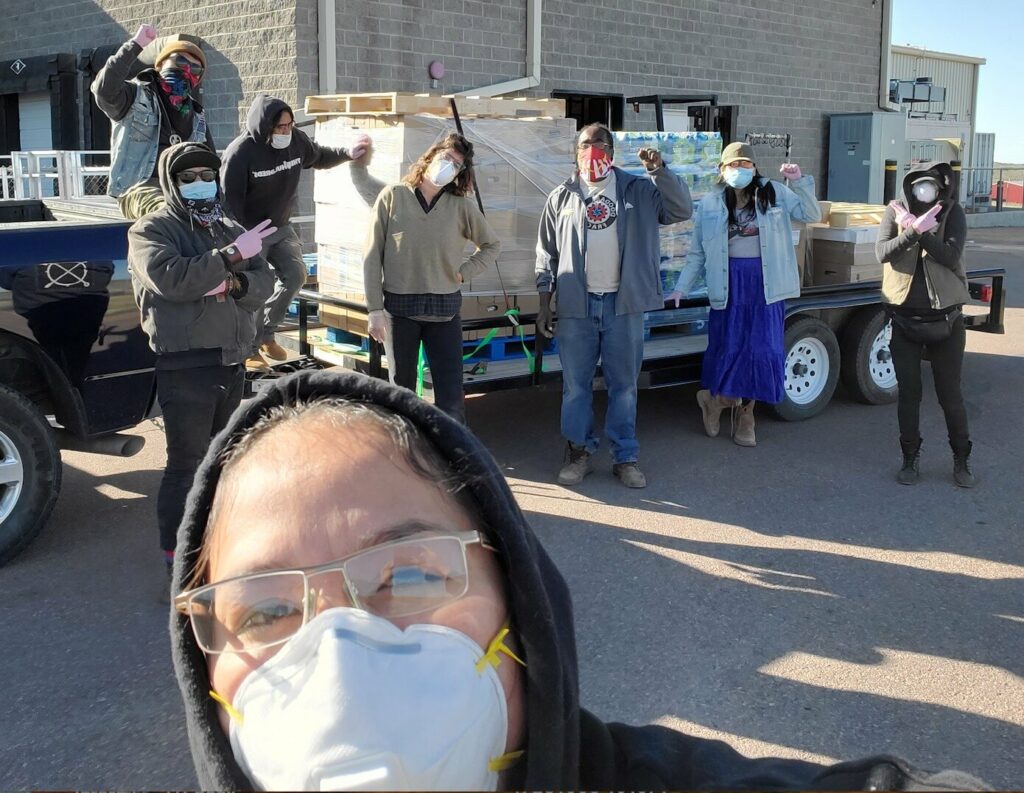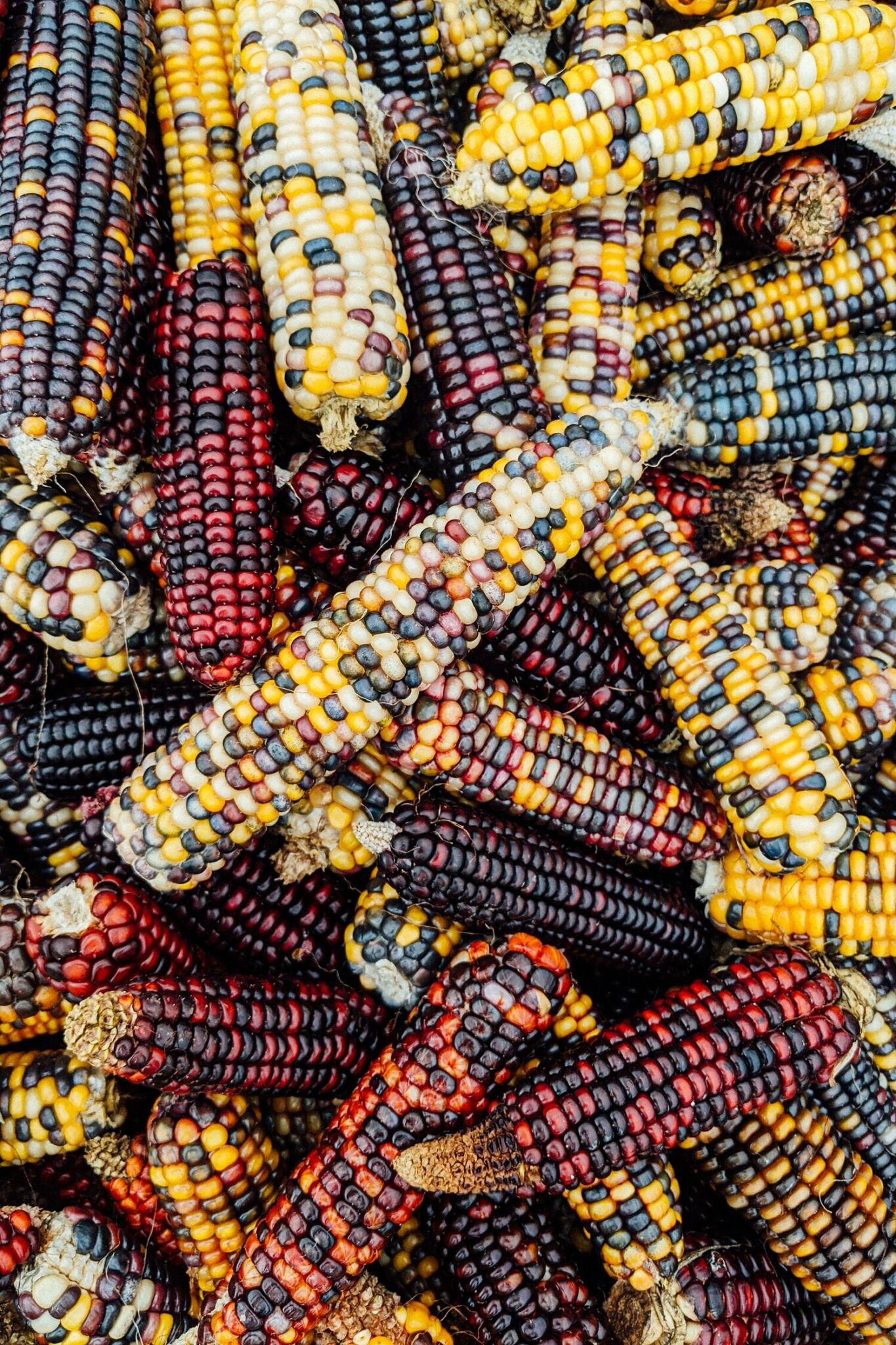By strengthening Indigenous seed systems, Indigenous communities are protecting their food sovereignty and culture.

Indigenous communities in the United States—and beyond—have been disproportionately impacted by the Covid-19 virus. The pandemic highlighted the grave consequences of a weakened food and agriculture system, contaminated lands, decades of extractive policies, and the systemic erosion of public healthcare. To many Indigenous activists and leaders, Covid-19 was also a catalyst: an urgent call to rebuild and restore Indigenous peoples’ health, resilience and livelihoods.
The International Indian Treaty Council (IITC), a long-term partner of the Agroecology Fund, has been supporting interventions to do exactly this. Faced with the dual crises of the coronavirus and climate change, the organization is dedicated to supporting Indigenous-led initiatives to strengthen food sovereignty. The IITC amplifies the voices of Indigenous peoples in decision-making spaces, offers training and leadership opportunities for Indigenous youth and revives traditional practices to increase sustainable food production, including farmer-managed seed saving.
“Saving our seeds is what is going to keep us alive, physically but also mentally and culturally as Indigenous people.”
— Chris Honahnie, member of the Diné and Hopi Nations, and IITC’s Administrative and Programs Assistant
Along with their partners—the Comobabi Community in the Schuk Toak District, San Xavier Cooperative Association Farm in the San Xavier District of the Tohono O’odham Nation, I’iolgam Youth Alliance and Yoemem Tekia Foundation (Pascua Yaqui Tribe), Shiprock Traditional Farmers’ Association, Shiprock Chapter of the Navajo Nation and Sixth World Solutions, Association of World Reindeer Herders, International Centre for Reindeer Husbandry, Sami Parliaments of Finland and Norway, and the Arctic Athabaskan Council, CONAVIGUA (Indigenous Widows Association, Guatemala), Kuna Youth Movement (Panama), and the Seminole Sovereignty Protection Initiative (Oklahoma), and others—the IITC has initiated a process of rematriation of their seeds (in essence, “reclaiming Indigenous spirituality, culture, knowledge and resources in respect of Mother Earth, in opposition to the patriarchal destruction and colonization that is continuing to endanger the way of life of Indigenous communities around the world.”)
“As Indigenous people, we are more than capable of taking care of our own seeds,” said Nicole Yanes, Opata from Arizona and IITC’s food sovereignty program consultant, in a recent webinar exchange organized for communities to share practical knowledge on preserving native seeds.
Clayton Brascoupe, the program director of the Traditional Native American Farmers Association shared that in New Mexico, members of the Mohawk/Anishnabeg Nation were stewarding a “low-tech seed bank” that stays cool naturally and allows seeds to be preserved at the community level.” They have a back-up collection in case something goes wrong with the principal one, and continue to exchange—never sell—seeds with other Indigenous groups in the region.
Duane ‘Chili’ Yazzie, member of the Diné Nation and Coordinator of the Shiprock Traditional Farmers’ Cooperative in New Mexico, also spoke about starting a seed library to protect the “seeds that were passed down from our ancestors and keeping the history of those seeds alive. As farmers, as indigenous people, we have the responsibility to protect our seeds,” he said.
“As farmers, as Indigenous people, we have the responsibility to protect our seeds.”
— Duane ‘Chili’ Yazzie, member of the Diné Nation and Coordinator of the Shiprock Traditional Farmers’ Cooperative
Yet, the free exchange of seeds is increasingly threatened by policies in support of seed privatization, such as the International Union for the Protection of New Varieties of Plants (Watch this video produced by AEF partner, GRAIN, to learn more.) Traditional, age-old practices are being criminalized and Indigenous agro-biodiversity faces the risk of being appropriated—and genetically contaminated—by agroindustrial corporations. “Those who don’t understand our way of life are trying to modify our seeds and our lands, but we need to stand against them,” said Chili Yazzie.
The Agroecology Fund is in support of Indigenous communities from across the globe as they reaffirm their rights over their own food systems. As stated in Article 31 of the United Nations Declaration on the Rights of Indigenous Peoples: “Indigenous peoples have the right to maintain, control, protect and develop their cultural heritage, traditional knowledge and traditional cultural expressions”, which includes the right to protect, reproduce and share Indigenous seeds.
Protecting these rights—and seeds—has never been more urgent. Stephen McComber, a Mohawk from Québec, noted that they are already seeing the seasons starting to change due to climate change. “We are at the northern limit where corn can be grown. We have flour corn, corn for cooking and corn for when the mind is lost (for example, when someone is grieving). We have a spiritual connection to our corn, which non-Indigenous people find it difficult to understand,” he said.
“We need the corn, and the corn needs us for its survival,” added Clayton Brascoupe from New Mexico. In all their diversity and ability to adapt, “native seeds [corn, beans, squash and more] address our nutritional needs, our spiritual needs and the needs of the earth also.” With sovereignty over their seeds, Indigenous peoples can ensure they remain healthy and nourished, even in the face of future pandemics and climate change.
Watch IITC webinars “Protecting and Restoring our Food and Ecosystems: Practical Knowledge Sharing with Indigenous Peoples, Part 1 and Part 2 on YouTube.
Photographs courtesy Unsplash/Markus Winkler and IITC.
